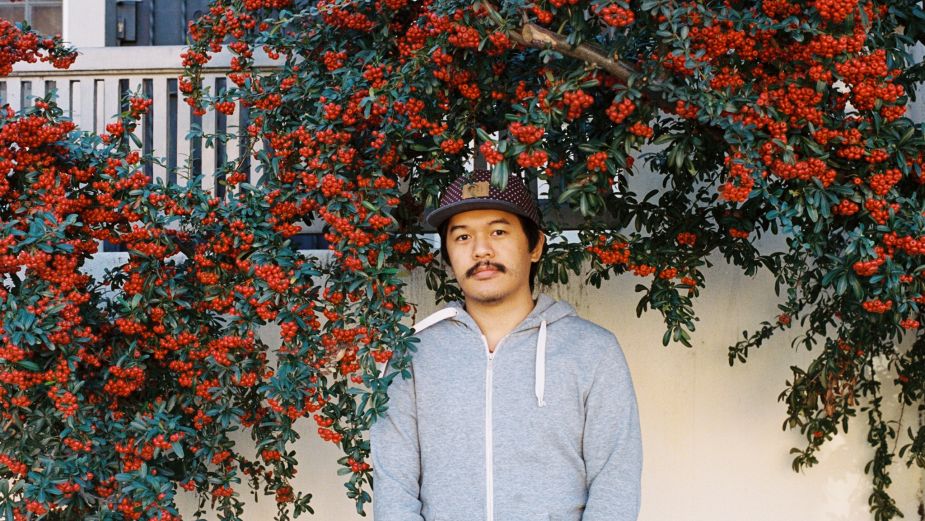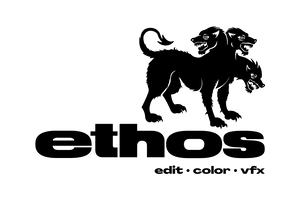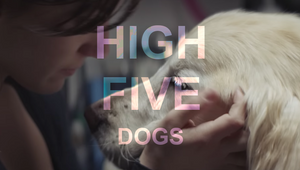
Finely Sliced: Chad Sarahina

A part of the Ethos team from the beginning, Chad Sarahina began editing after moving to the suburbs of Atlanta, GA. Initially cutting short narrative films in Georgia, Chad’s career soared after he moved to Los Angeles in 2013. Spending his early years in Los Angeles working on projects for Vice and music videos for friends, Chad learned much of his craft from director, and Chad’s mentor, Brandon McCormick, whom he is currently working on a feature film with. Chad portfolio includes commercial. feature film, and music videos for artists including Bad Bunny and Jack White. His top work includes Bad Bunny “La Deficil” and “Ignorantes,” the “Coachella Golden Hours” documentary, and the VMA winning “Get Low” for Zedd & Liam Payne.
LBB> The first cut is the deepest: how do you like to start an editing project?
Chad> Turn on the tunes. Listening to music while making my selects may seem distracting and counterproductive, but I enter a sort of trance state. Although this doesn't really work with dialogue scenes.
LBB> Non-editors often think of editing just in technical terms but it’s integral to the emotion and mood of a film. How did you develop that side of your craft?
Chad> A lot of it came through film study and reading books on filmmaking. Robert McKee's Story and Joseph Campbell's The Power of Myth are essential reads. The Power of Myth sticks out to me because the basis of it is why we are attracted to stories on a human level.
LBB> How important is an understanding of story and the mechanics of story?
Chad> Story is essential to being human. Everyone understands it. Without story in editing, you're just putting different pictures in a different order and calling it good. Unfortunately, a lot of content is made like that these days. I always want to be sure each cut reveals something new. Shots within a piece need to have a reason to be there.
LBB> Rhythm and a sense of musicality seem to be intrinsic to good editing (even when it’s a film without actual music) – how do you think about the rhythm side of editing, how do you feel out the beats of a scene or a spot? And do you like to cut to music?
Chad> When it comes to scenes without music, for me, it comes down to really putting myself into the scene. What do I physically want to look at next? Real conversations have "beats" and pacing. You just follow that.
Cutting to music? In narrative editing, I like to do both. Start without music. Feel the scene out naturally. Then cut with a temp score. Then play with the two back and forth.
LBB> Tell us about a recent editing project that involved some interesting creative challenges.
Chad> When lockdown started, we were in the middle of a few projects so we had to rush to figure out how to do remote sessions. We tried Zoom but it was too laggy. I came up with the idea to use Discord instead, which is a platform that Gamers use to stream live images in real time all over the world. I’m a gamer so I was already familiar with it so we tested it and it worked flawlessly. We all started using it and clients so far have loved it.
This is also a great example of why I like working with Ethos. There’s a mentality of embracing technology and finding new ways to do things, to always be evolving and growing. This creativity happens not just in the work we do but in the way that we do it.
LBB> In the US we know that editors are much more heavily involved across the post production process than in Europe - what’s your favourite part of that side of the job?
Chad> Well, it’s interesting. Many of my strongest relationships are with directors. And I've also been fortunate to work with a lot of really cool creative directors and producers on the agency or brand side. I believe that being collaborative creates the best work. So I try to be inclusive and intentional about that.
LBB> What’s harder to cut around – too much material or not enough?
Chad> Not enough. Every time. I don't really know if this is just an anxiety of mine or actually true, but I feel there's a much bigger pressure on the editor to find the solution to the problem when there's not enough source material.
LBB> Which commercial projects are you proudest of and why?
Chad> The National Education Association PSA I did with director Pasqual Gutierrez is definitely one I'm proud to say I got to work on. Teachers, public education teachers, in particular, are very underserved in our country and we can see the detriments to the education of people in this country because of that.
If we are putting out a message that betters the world in any kind of way I’m all for that. And this goes beyond PSAs as well. Naturally, a lot of work we do is very much “advertising,” which is rewarding in its own way; but a lot of it is also starting to incorporate messaging related to social issues and responsibility. I see that as a good development.
LBB> There are so many different platforms for film content now, and even in advertising something can last anything from a few seconds to a couple of hours. As an editor, are you seeing a change in the kind of projects you’re getting from brands and agencies?
Chad> The tools for making films are more readily available to people these days so creativity has to be more cutting edge to break through. You have just a few seconds to capture attention, especially when the piece you are delivering might only be a :10 or :15. Thinking about the platform where a piece of content will live definitely helps inform the creative approach.
As far as a change in the projects, I would say that the increase in volume of deliverables is pretty notable. It’s rare that we are cutting just a :30 and nothing else. There are social assets, different aspect ratios, different versions. This isn’t a bad thing as long as everyone’s expectations reflect the reality. We’re all doing more with less these days. More volume, less time, less money. The process is evolving to account for this, at least most of the time.
LBB> Who are your editing heroes and why? What films or spots epitomise good editing for you?
Chad> Heroes. Okay, I’ll say it....Walter Murch. Paul Hirsch as well. Those guys were pioneers. Their books talk a lot about old-time Hollywood and it's just so fun to read about how things used to be. Filmmaking was much more exclusive and majestic back then, but there's no questioning that the industry still lacks real voices from all types of communities and cultures.
Films? The Safdie brothers films have great editing. Any spot directed by Daniel Wolfe or AG Rojas usually has great editing.
LBB> How does editing in the commercial world differ from the film world and TV world?
Chad> I’ve only worked on small-scale film and TV projects so I don’t know much about the studio system or really any big workflows on that scale. What I will say is there is a huge "filmmaking" disparity. While, yes, agencies are always on the lookout for the up-and-coming directors, there really is not enough emphasis on making art. Commercials have to sacrifice a lot of what is good storytelling and filmmaking to what is cool now and what will sell the most. Granted the film and TV world suffers the same.
LBB> Have you noticed any trends or changes in commercial editing over recent years?
Chad> Zoomer editing. I feel simultaneously old and young for saying this. I think we're starting to see a shift in ads where more and more spots are getting this super frenetic, meme-style treatment. Quick jump cuts with crash zooms.













